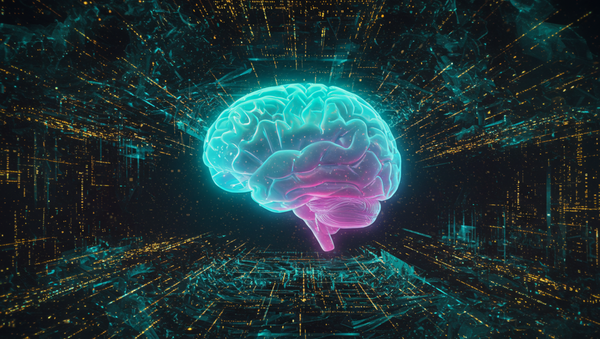Students Outsourcing Higher-Order Thinking to AI, Inverting Traditional Learning Pyramid

AI systems are primarily completing higher-order cognitive functions for university students rather than basic tasks, with Creating (39.8%) and Analyzing (30.2%) being the most common operations delegated to AI assistants like Claude, according to a groundbreaking new research report.
This concerning trend effectively inverts the traditional learning pyramid and raises profound questions about skill development in higher education, End of Miles reports.
The inverted pyramid problem
In one of the first large-scale studies examining real-world AI usage patterns in higher education, Anthropic analyzed one million anonymized student conversations on Claude.ai, discovering that students are increasingly outsourcing their most complex cognitive work to AI systems.
"There are legitimate worries that AI systems may provide a crutch for students, stifling the development of foundational skills needed to support higher-order thinking. An inverted pyramid, after all, can topple over." Anthropic Education Report
The research team adapted Bloom's Taxonomy, a hierarchical framework used in education to classify cognitive processes from simpler to more complex, to analyze Claude's responses when conversing with students. What they found presents a troubling picture for educators.
While traditional educational theory suggests students should build from lower-order skills like remembering and understanding before progressing to higher-order thinking, the data shows students are outsourcing precisely those higher-level tasks to AI systems.
The cognitive skills students are delegating
The Education Report identifies a clear pattern of students delegating the most valuable cognitive activities:
"Claude was primarily completing higher-order cognitive functions, with Creating (39.8%) and Analyzing (30.2%) being the most common operations from Bloom's Taxonomy. Lower-order cognitive tasks were less prevalent: Applying (10.9%), Understanding (10.0%), and Remembering (1.8%)." Anthropic researchers
This distribution also varied by interaction style. As expected, Output Creation tasks, such as generating summaries of academic text or feedback on essays, involved more Creating functions. Problem Solving tasks, such as explaining programming fundamentals, involved more Analyzing functions.
What this means for higher education
This inversion of traditional learning models poses fundamental questions about how educators should respond. The Anthropic report acknowledges that students engaging with AI doesn't necessarily preclude them from also developing these skills themselves—for example, co-creating a project with AI or using AI-generated code to analyze a dataset in another context.
"As students delegate higher-order cognitive tasks to AI systems, fundamental questions arise: How do we ensure students still develop foundational cognitive and meta-cognitive skills? How do we redefine assessment and cheating policies in an AI-enabled world?" The research team
In response to these findings, Anthropic is experimenting with a "Learning Mode" that emphasizes the Socratic method and conceptual understanding over direct answers. The company is also partnering with universities to better understand AI's role in education and directly study its effects on learning outcomes.
As AI capabilities continue to advance, the researchers warn that "everything from homework design to assessment methods" may fundamentally shift, requiring a complete rethinking of educational approaches for an AI-enabled world.





